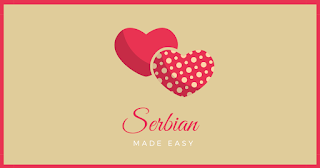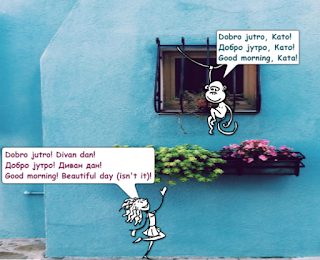Serbian 301 - Asking Questions with Verbs which Require Accusative
In the previous lessons of Serbian 301, you practiced:
- using the accusative case of the nouns following the verb VIDETI = TO SEE
- using the relative clauses with KOJI /KOJA/ KOJI/ KOJE = who
- listening comprehension task in this post
Serbian 301 - Asking Questions
Now, let's practice asking questions about these photos! Let me give you a few examples.
- Šta žena čita? Ona čita novine.
- Gde sedi žena koja čita novine? Sedi u kafiću.
- Da li žena koja sedi u kafiću pije kafu ili vino? Ona pije kafu.
- Šta nosi žena koja čita novine? Nosi beretku.
- Gde ide žena koja nosi kafu? Ide na posao.
- Gde su ljudi? Oni su u muzeju.
- Šta ljudi koji su u muzeju gledaju? Gledaju veliku sliku.
- Gde su ove devojčice? One su u vozu.
- Šta čitaju devojčice koje su u vozu? Čitaju Hari Potera
- Gde je ova crkva? Na Novom Zelandu.
- Kako izgledaju ljudi koji idu u crkvu? Ljudi koji posećuju crkvu su stari.

.png)




















